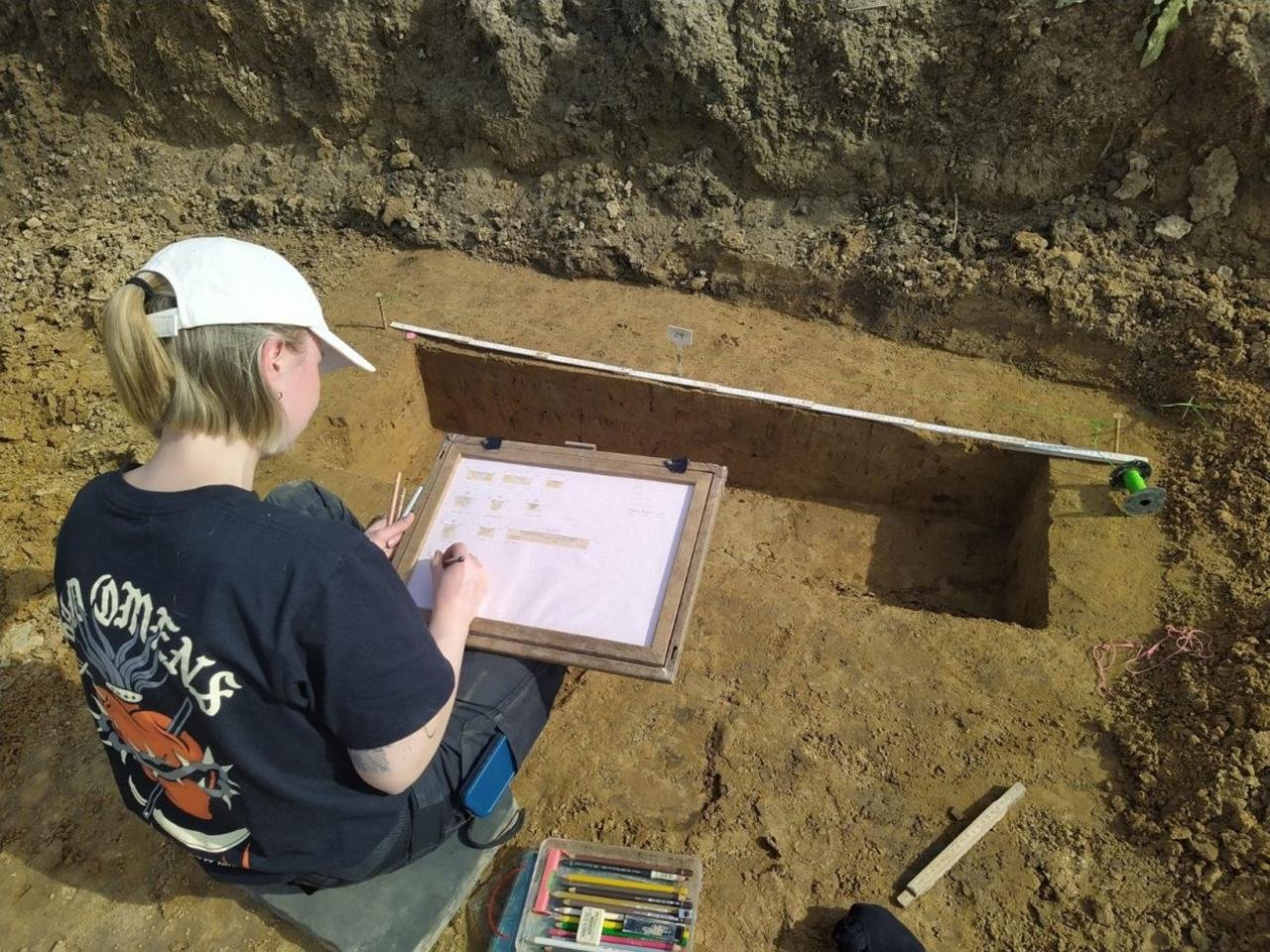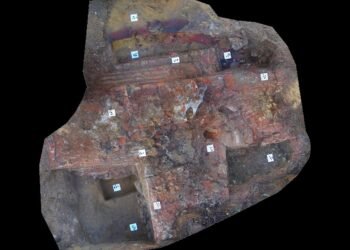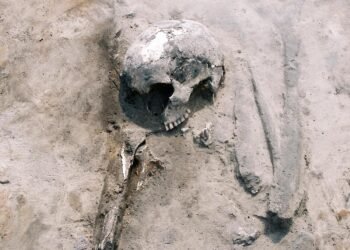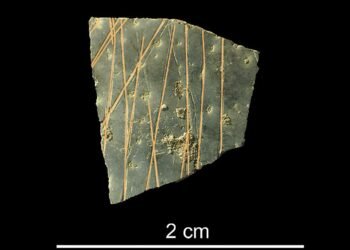Archaeologists from the Westphalia-Lippe Regional Association (LWL) have unearthed remnants of early medieval farmsteads and Iron Age burials over the course of excavations spanning a 7.5-hectare area near the town of Werne in North Rhine-Westphalia, Germany.

The excavation, initiated in January 2023, revealed traces of a settlement outside Werne, with residential buildings dating back to around 867 CE, according to a news release from the Landschaftsverband Westfalen-Lippe.
These structures, including barns and sunken-featured buildings, were arranged around a central farmstead and separated by ditches. The discovery of a well further aided in dating the site, with dendroarchaeological analysis indicating a construction date of approximately 867 CE, aligning with the time of Louis the German’s reign.
Dr. Thorsten Westphal, head of the dendroarchaeology laboratory at the University of Cologne, remarked on the significance of the well’s construction date, stating, “A felling date of the tree of 867 +/- ten years could be determined.” This finding underscores the importance of the site during the late 9th century CE.

The location, situated on the edge of the Lippe floodplain, likely supported a dense population of farms during the medieval period. Excavation leader Christopher Otto noted that similar settlements existed nearby, with one discovered over a century ago just west of the current site. However, challenges arose during the excavation process, particularly in February when heavy rains inundated the area, requiring the use of pumps to continue the work.
Despite these obstacles, the archaeologists made a surprising discovery: ancient graves dating back to the Iron Age, nearly 1,000 years earlier than the medieval settlement. The graves contained cremated remains, indicative of burial practices during the late Iron Age, along with grave goods and remnants of funeral pyres. This unexpected find suggests the possibility of an older settlement buried beneath or in proximity to the medieval site, prompting further investigation.
Dr. Eva Cichy, an archaeologist with LWL, emphasized the importance of the botanical material preserved in the well, stating, “Due to the high groundwater level, even finely divided botanical material such as leaves and small twigs was preserved.”
As the excavation continues, researchers remain hopeful that further discoveries will provide answers to lingering questions about the area’s history. The researchers noted, “Whether traces of a settlement from the same period can be found is one of the many questions to which we hope to find answers through further excavation progress.”





















